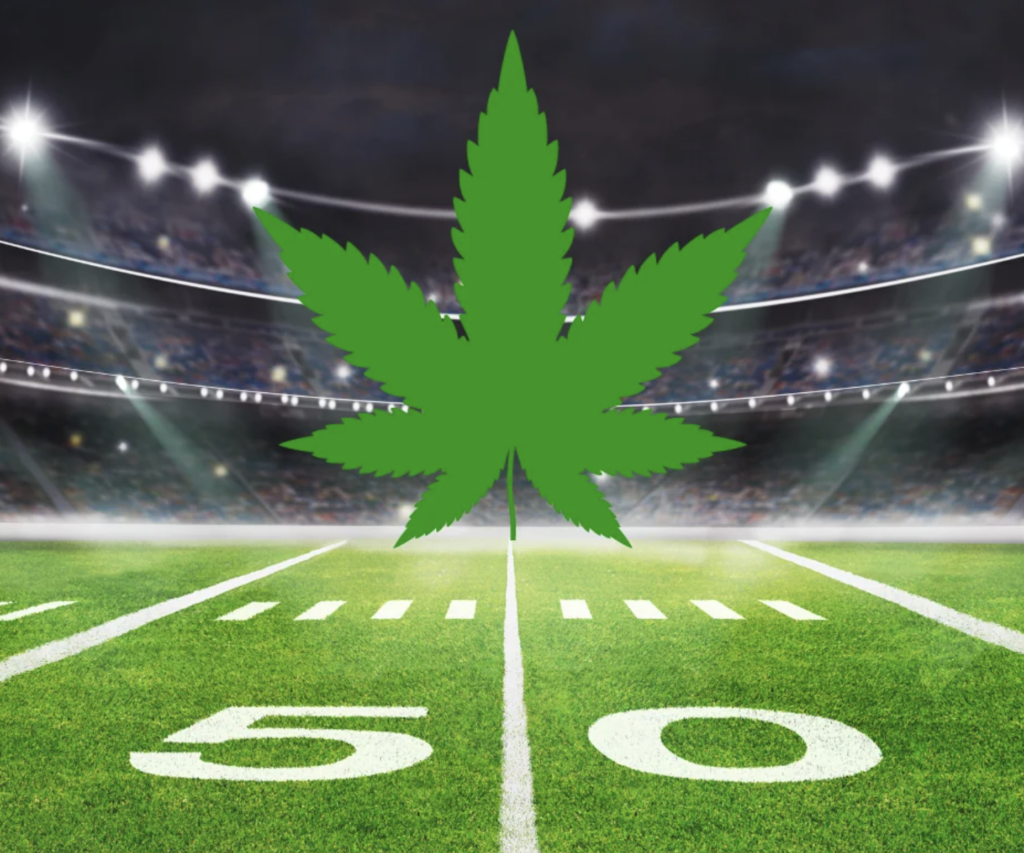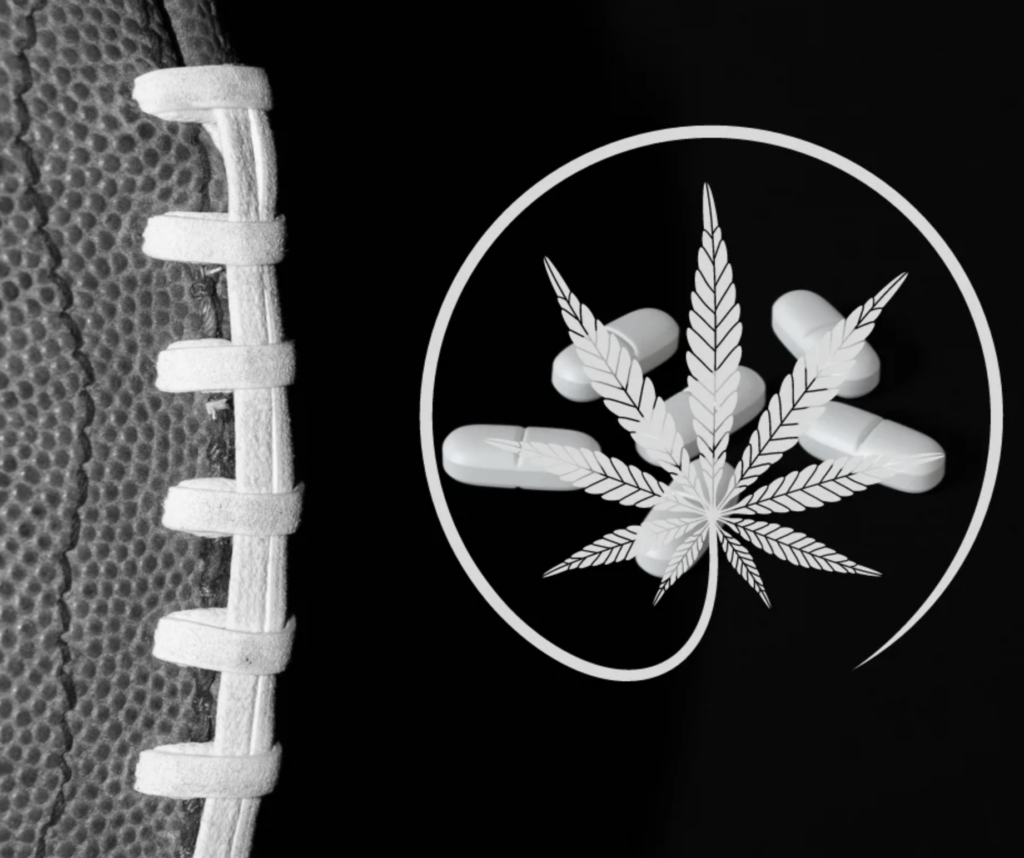
The National Football League (NFL) and cannabis have had an unpleasant history. In the past, players faced fines, suspensions, and even termination if they tested positive for THC. Thankfully, times have changed, and the NFL has updated its policy regarding cannabis. More and more people are becoming medical cannabis patients each year, and that includes people like professional NFL athletes.
The National Football League started in Canton, Ohio, on September 17th of, 1920. At this time, it was called the American Professional Football Association. It all started with ten football teams, leading to four more joining that same year, creating the original 14 NFL towns. Some of those early football teams are still at it today, such as the Chicago Bears, New York Giants, and Green Bay Packers. Today the NFL consists of 32 teams divided into two conferences containing 16 teams each, the National Football Conference (NFC) and the American Football Conference (AFC).
It’s a safe bet to guess that some of the early NFL players utilized the medicinal attributes of cannabis. Cannabis was not under prohibition or illegal when the NFL started. Cannabis prohibition didn’t effectively start until the MJ Tax Act was signed in 1937. People have known about the medical properties of cannabis for thousands of years, just not our politicians it seems. Even the National Institute of Health knows that cannabis has been utilized as a medicine for over 3,000 years. Luckily, today, the NFL has joined modern society in its acceptance of cannabis and wants to learn more about the potential medical benefits it could offer NFL players.
The NFL Changes Its Policy on Cannabis
After decades of harsh penalties for players caught with THC in their system, the NFL has changed its outdated cannabis policy to fit in with modern times. Today, players in the NFL who choose to utilize the medical benefits of cannabis no longer face termination. It’s not exactly okay for players to use medical cannabis in the NFL, but the league is starting to open its mind and eyes to the benefits of medical cannabis.
The NFL has raised the threshold for a positive THC test from 35 nanograms to 150 nanograms. They also eliminated suspensions because of positive THC test results. Instead of a suspension, NFL players who test positive for THC could face a fine amounting to up to 3 weeks of pay.
2021 was the first year players in the NFL could use cannabis during the off-season. The NFL announced that they would not test for THC from April 20th to August 9th of 2021. This allowed NFL players to participate in the widely popular 420 holiday that’s celebrated by cannabis patients and advocates across the country.
In February of 2022, the NFL contributed 1 million dollars to research the effect cannabis use has on NFL players. The University of Regina and the University of San Diego both received $500,000 each for this research. This research will focus on retired NFL professionals and current NFL players that have received on-field injuries.
The director of the Center for Pain Medicine at UCSD Health, Dr. Mark Wallace, was quoted telling the media, “Our team is excited to receive this funding to conduct a systematic, real world, real-time study with professional athletes which should shed further light upon the many anecdotal reports that cannabis is helpful in reducing post-competition pain.”
NFL athletes put their bodies through excruciating extremes. Sometimes they push their bodies too far, resulting in injuries ranging from temporary to permanent. Long-lasting physical trauma is often dealt with these days by a combination of therapy and prescription drugs. It’s no secret that NFL players have had a major problem with prescription drug dependency, addiction, and abuse. All of this is legal, of course, to a degree. There are stories of players trading pills with one another as well as turning to the street to buy more when they have already consumed what the doctor prescribes them.

NFL Players and Medical Cannabis
Medical cannabis is proving to be a much safer option for pain management than prescription drugs in many cases. In an article published on WSBR Radio Atlanta’s News Talk 95.5, sources suggested that an estimated 50 to 90% of the players in the NFL use medical cannabis for pain management and performance enhancement.
Performance enhancement means it helps them pre and post-workout. Many people who train hard find cannabis to be a very beneficial companion to their daily regimens. Thanks to cannabis legalization that has happened in many places across the nation and a change in cannabis policy by the NFL, more players than ever before are coming out in support of medical cannabis and how it helps them. It’s very common for former professional NFL athletes to support medical cannabis and even venture into cannabis entrepreneurship. NFL Legends such as Joe Montana, Marvin Washington, Ricky Williams, Tiki Barber, and others have all not only embraced medical cannabis; they have invested in it.
Professional athletes in the NFL and other sports find that medical cannabis proves to be a great substitution for opioids and other prescription painkillers. The vast majority of players in the NFL that use cannabis do so to help them manage pain. As cannabis legalization progresses across the nation, more professional groups and organizations will begin to reverse their outdated and archaic policies regarding cannabis. The theory that cannabis is a gateway drug has been disproven repeatedly. Cannabis has thousands of years of medical history around the globe. It just goes to show you that the old phrase your past will catch up with you holds true. The healing and medical attributes of cannabis that have been known for thousands of years are finally catching up to the blind eyes and deaf ears of lawmakers and elected representatives in our country. If the federal government were to remove cannabis from being a schedule 1 drug, perhaps the issue of cannabis testing and the countless dollars wasted on it could be passed, moving on to focus on more relevant issues. Issues like making sure everyone has affordable, safe, legal access to the many potential health benefits of medical cannabis.
Disclaimer: The information, including but not limited to, text, graphics, images and other material contained in this article is for informational purposes only. No material from this article is intended to be a substitute for professional medical advice, diagnosis, or treatment. Always seek the advice of your physician or other qualified health care provider with any questions you may have regarding a medical condition or treatment before undertaking a new health care regimen. Never disregard professional medical advice or delay in seeking it because of something you have read on this website.
